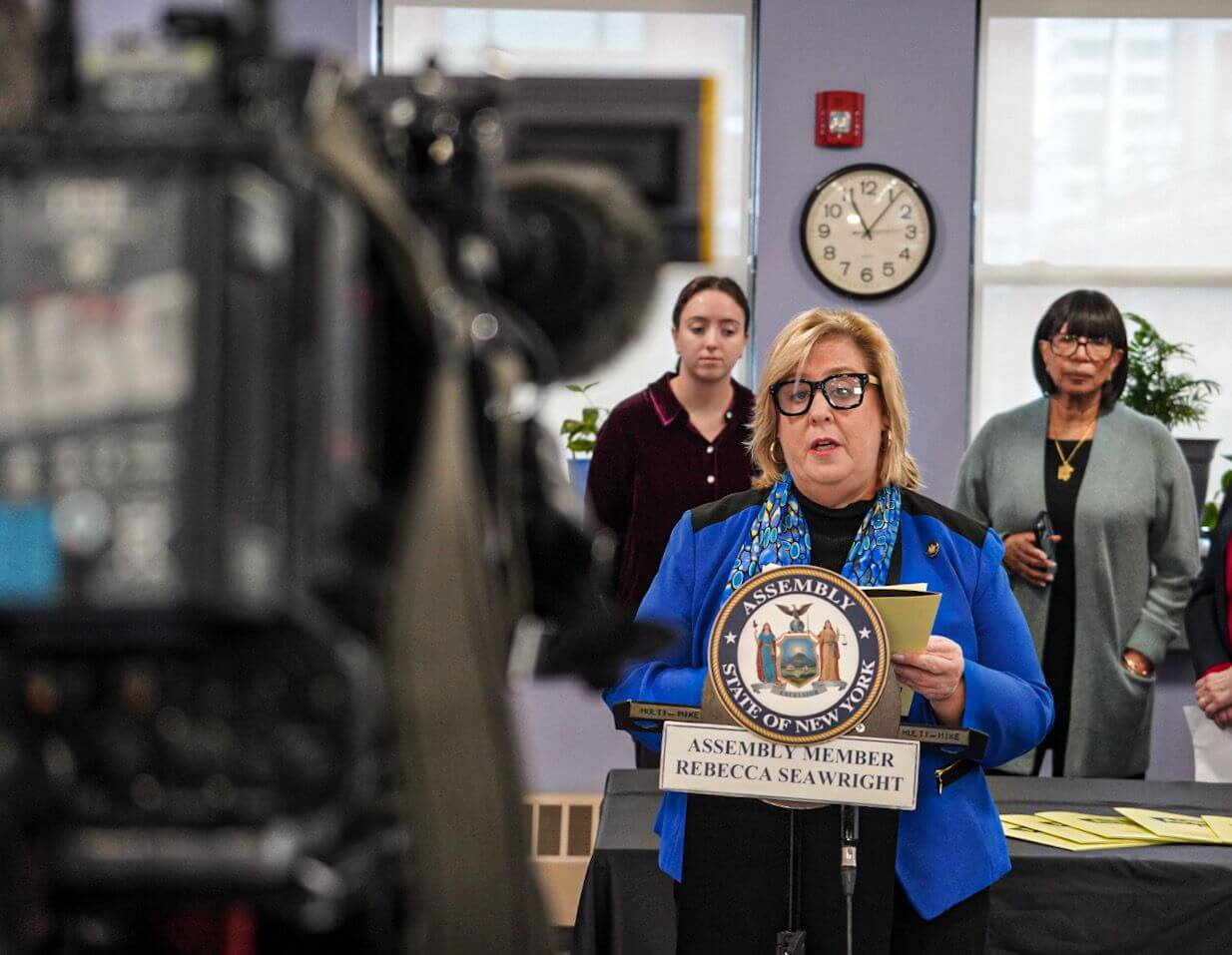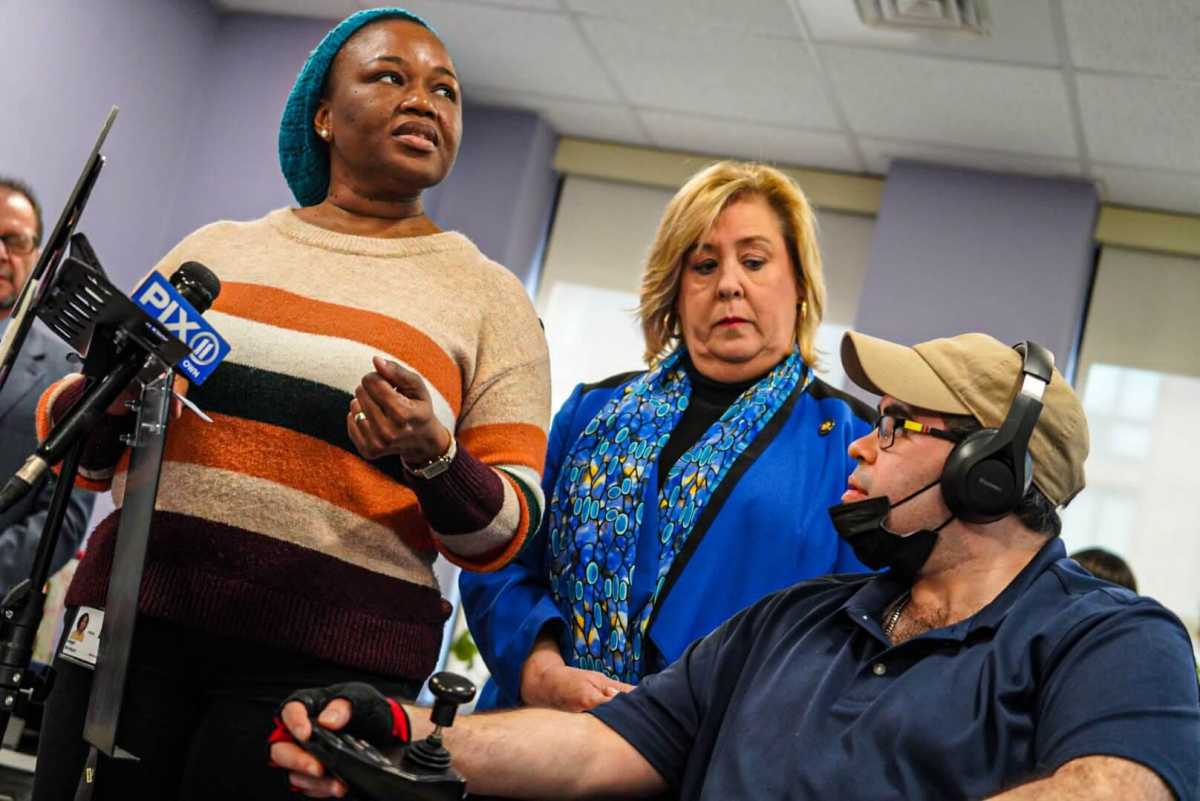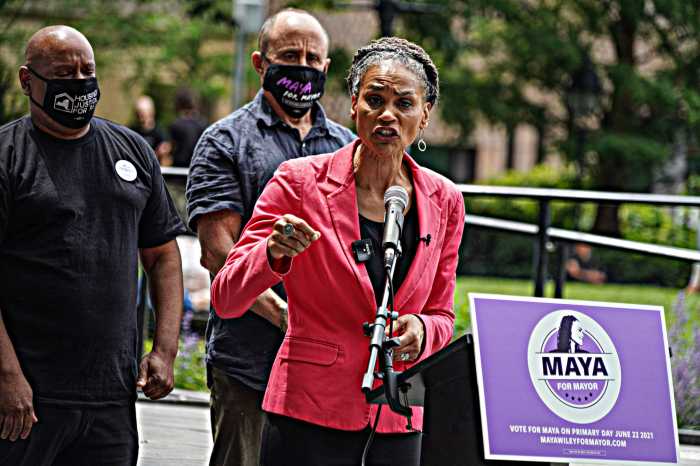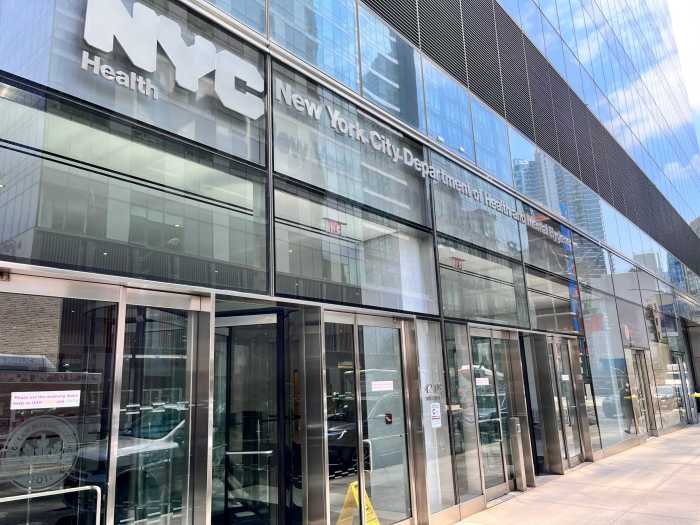Caregivers who work with people living with Intellectual and Developmental Disabilities (I/DD) are not getting paid enough and there are fears that many will exit the industry, according to a state legislator and parents of children with special needs.
Assemblymember Rebecca Seawright, who represents the Upper East Side, held a press conference Thursday with caregivers to bring attention to the wage issue. She sounded the alarm that workers who care for people with Intellectual and Developmental Disabilities (I/DD) are likely to leave the industry and find better paying jobs elsewhere.
Parents of children who rely on such care wept at the press conference that was held inside the Walter and Evelyn Redfield Day Services in Midtown Manhattan. The tears were spurred on by the fear of what will become of their loved ones should workers flee the industry. They attribute the growing problem to a lack of funding, budget cuts and wage stagnation.
“My son, Daniel, is funny, charming and very medically involved,” said Meri Krasner, a parent who spoke at the press conference. “Three years ago, he was offered a place by HRC in a residence here in Manhattan. A miracle in many ways. But my worries have come back because of the turnover and staff. I am afraid for him and beginning to start thinking again…that [it] would be better if Daniel predeceases us because New York State doesn’t seem to recognize how lucky we are that the staff choose to do this demanding job.”
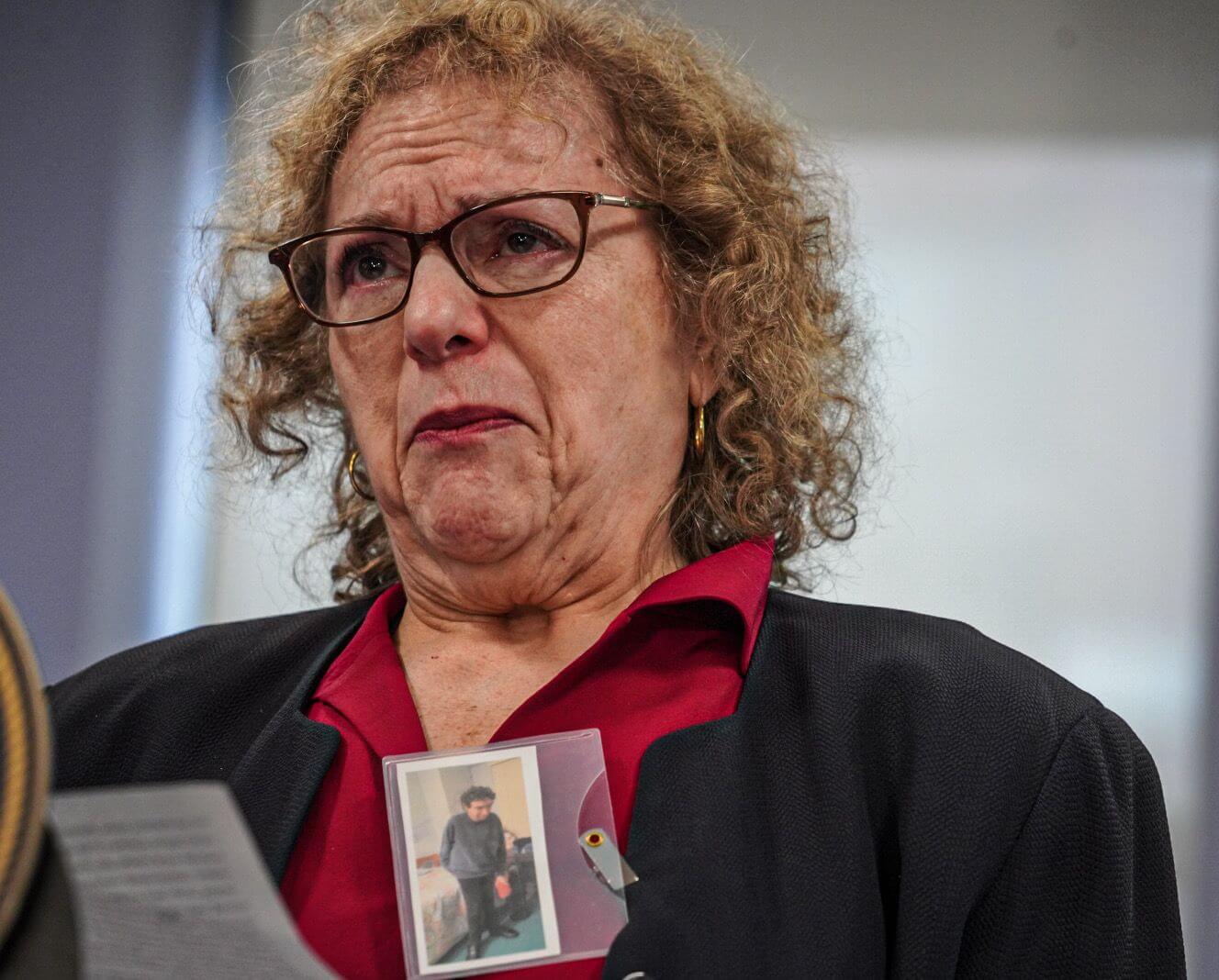
According to Marco Damiani, CEO of AHRC New York City, the issue stems from a lack of funding over the past decade that has left workers with low wages that have not kept pace with inflation, rising rents, and the overall cost of living. While Damiani says that Gov. Kathy Hochul has included a 2.5% Cost-Of-Living-Adjustment (COLA) as part of the 2024 Executive Budget, he argues that the amount is a meager and will have very little impact for workers struggling to make ends meet.
Seawright, who is the assembly chair of the Committee on People with Disabilities, is calling on state legislators to pass two measures to help caregivers who are part of the I/DD workforce. One would increase the 2.5% COLA to 8.5%, something Seawright believes will help offset rising inflation. The second calls for a Direct Support Wage Enhancement (DSWE), which involves allocating funds to provider agencies who would then boost the hourly pay of I/DD workers.
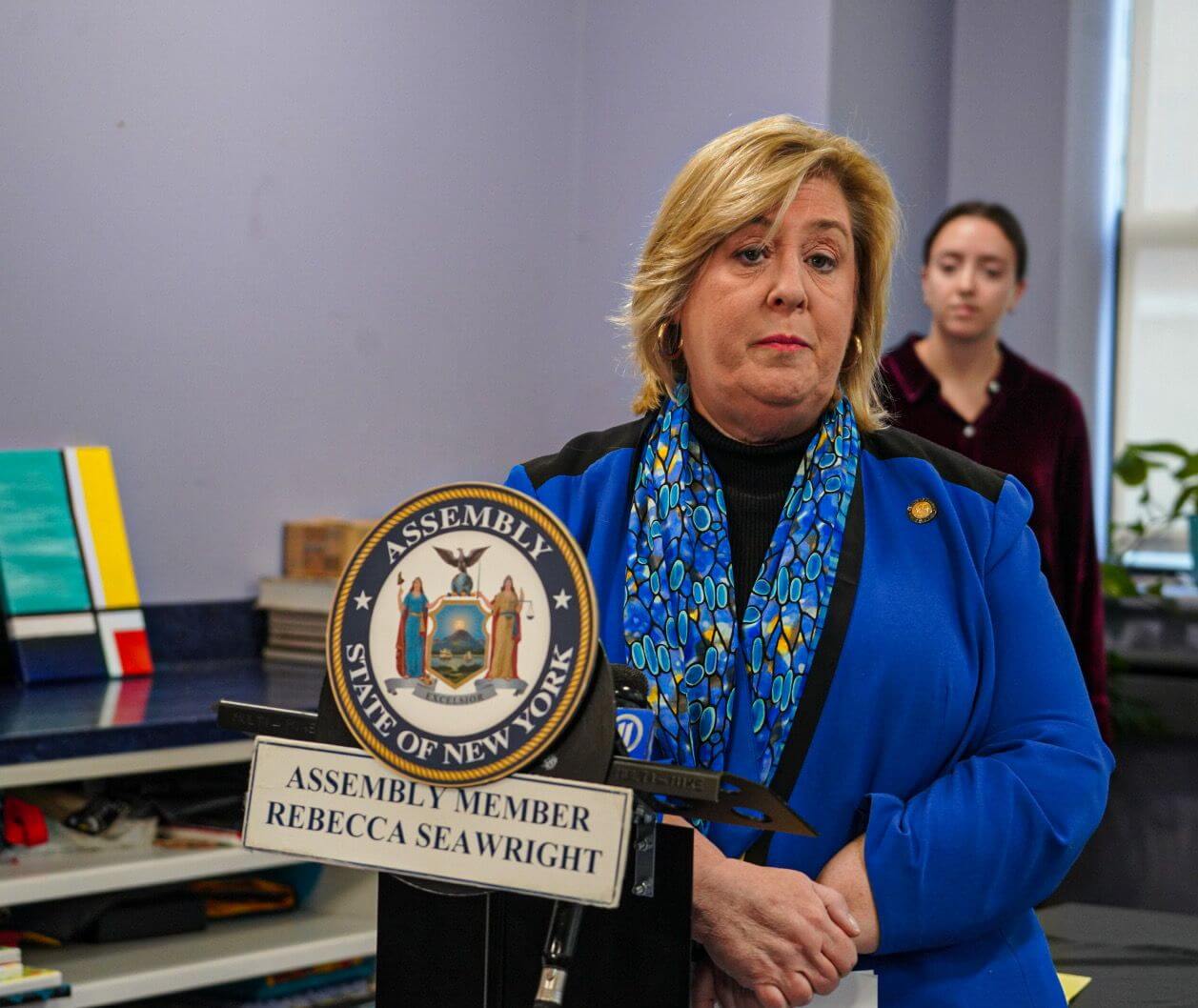
Seawright said that there are over 100,000 New Yorkers who work in professions that serve people with intellectual or developmental disabilities.
She said that many of these workers have been falling behind as the cost-of-living increases and that it is an issue that needs to be addressed.
“We simply can’t keep doing business as usual,” Seawright said. “Paying I/DD provider professionals less than fast food and retail workers is unacceptable, and it must be remedied, and it must be remedied now.”
Daniel Marrero, a wheelchair bound man living with I/DD, also spoke about his fear and frustration. Voicing his love of the programs at Walter and Evelyn Redfield Day Services, he said he would be angry if he could no longer see his friends due to a lack of caregivers.
“I do art, I do poems, I volunteer,” Marrero. “If I couldn’t come, I would be angry and frustrated.”
